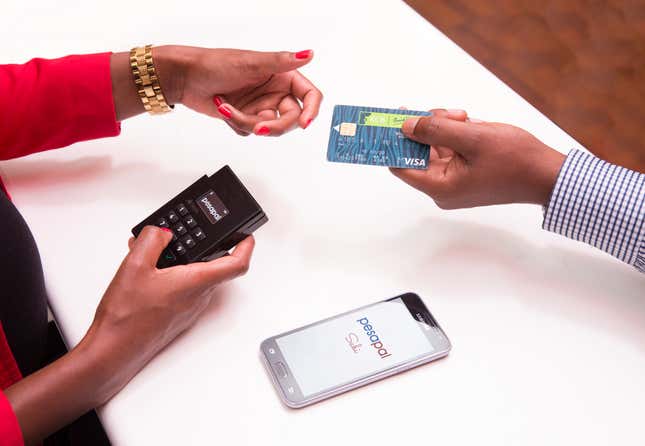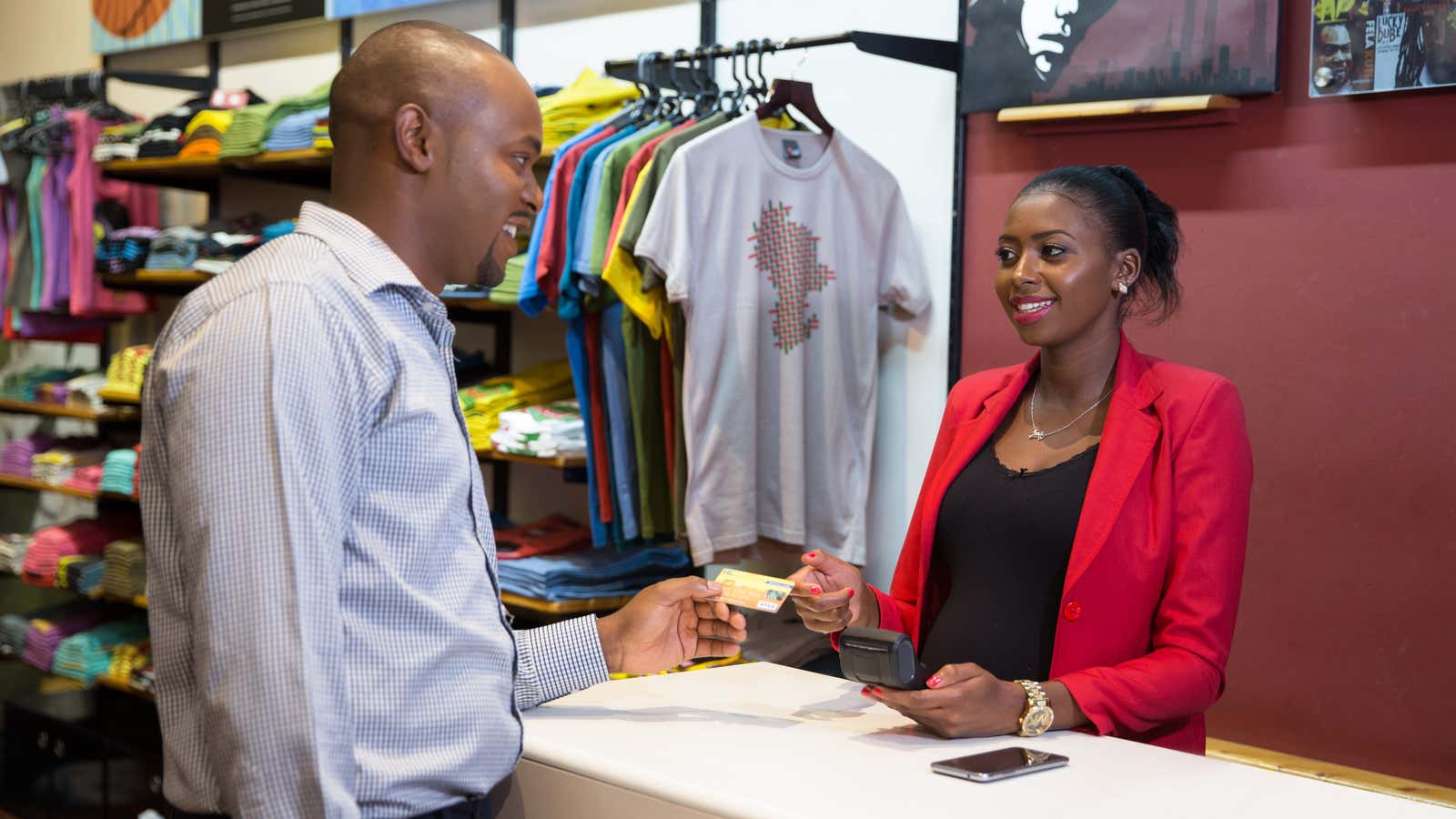Mobile operators and electronic payment firms are focusing on the hundreds of thousands of small businesses in Kenya by introducing new products specifically aimed at paying for low-value card transactions with ease, speed, and convenience.
PesaPal, a Nairobi-based aggregator for online and mobile payments, recently introduced a mobile point of sale (mPOS) service known as Sabi (Pidgin English for ‘understand’) that would process payments in both local and US dollar currencies. Using their Android phones or tablets, the Visa or MasterCard payments are processed over Bluetooth by connecting to a portable terminal. The technology allows the over 300 businesses in Kenya, Uganda, and Tanzania that have signed up so far to view their transaction history and to issue receipts.
After launching POS systems to rival similar products like PayPal and Square to target large chains, PesaPal CEO Agosta Liko tells Quartz the mobile portal will tap into the potential of smaller businesses like barbershops, artisan furniture stores, gyms, and craft stores by allowing consumers to make payments from as little as one Kenyan shilling ($0.009). It’s a “big market. It’s a ridiculously big space,” Liko said. “So we are looking to that as a market that we would be able to serve reliably.”
The e-pay services are buoyed by a myriad of reasons including Kenya’s place as a global leader in mobile money. Since it was launched in 2007, services like Safaricom’s M-Pesa have especially boosted access to financial services, with over 22.6 million Kenyans subscribing to it, according to the local regulator. Through commercial agreements with banks, mobile phones can also be used to open and use bank accounts virtually, deposit and withdraw cash, and also access credit. As such, banks like Barclays and Equity have introduced mPOS technology to help businesses and retailers boost sales and easily charge for home deliveries, transportation, and events ticketing.
Because of increasing limitation and mounting competition, services like M-Pesa have also had to innovate in order to stay efficient and responsive to growing public needs. In 2013, the company introduced Lipa Na M-Pesa (Pay with M-Pesa) service to allow small and medium-sized businesses to collect money from their customers. In October, it upgraded that service by announcing M-Pesa 1Tap, allowing customers to use a card, phone sticker, or a wristband device to make payments.
Rita Okuthe, the director of enterprise business at Safaricom, says the service, currently available at more than 22,000 merchants in Kenya, “reduces the number of steps it takes to make a payment from eight steps to just one step for the customer.”
The upcoming e-commerce market has also allowed mPOS technology to thrive. Kenya has experienced an e-commerce boom thanks to a high number of mobile internet users partly driven by the growing availability of affordable smartphones. As of June, the value of mobile commerce transactions was just over $6.7 billion, producing a competitive market for e-commerce sites like Kilimall International, Pigiame, and OLX. Sensing this opportunity to draw both customers and merchants in, Safaricom unveiled an e-commerce platform Masoko in November.

As more Kenyans become aware of the benefits of connectivity and local operators give them more reasons to connect, there’s more room to innovate around mPOS systems. Later versions of Sabi is expected to support mVisa, M-PESA, and American Express payments, Liko says, and the technology will help their clientele gather information on their sales, customers, how they pay, and how quickly they cycle their inventory.
